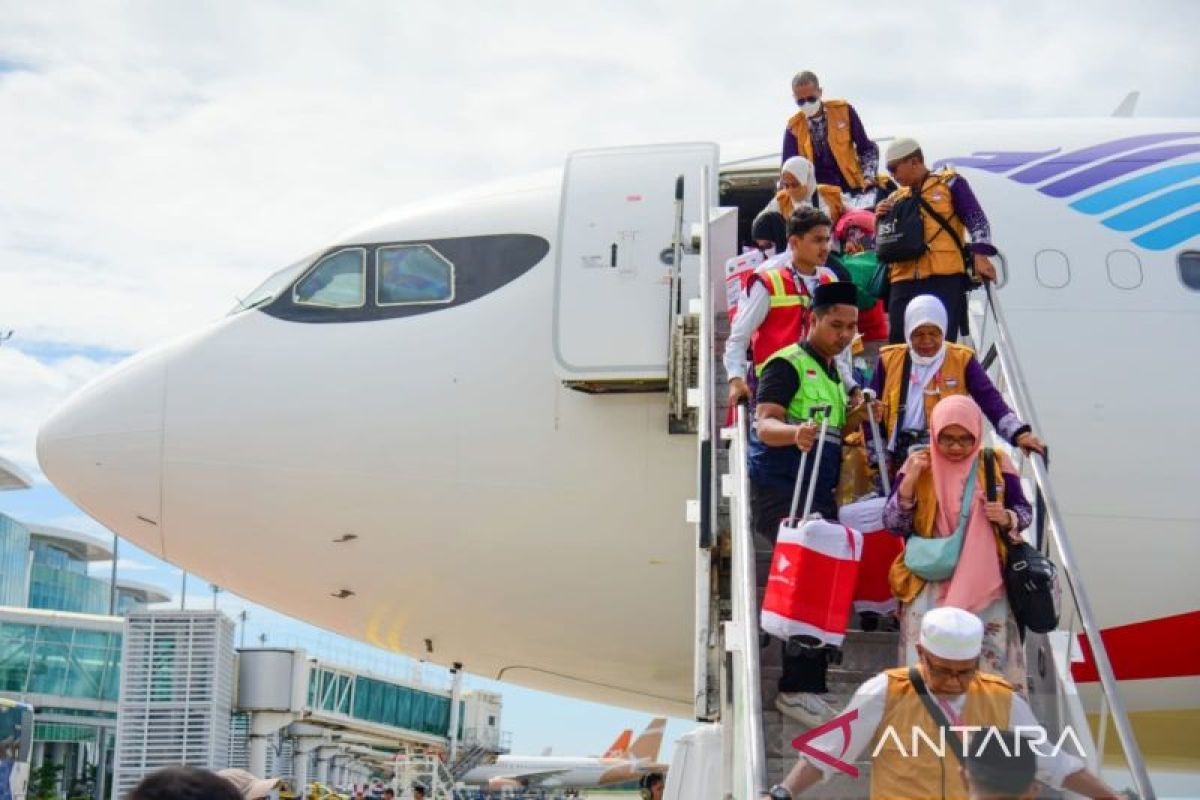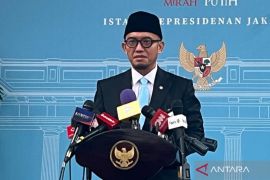There were several reasons why many flights were delayed, such as extreme temperatures in Saudi Arabia, which resulted in decreased aircraft performance, limited aircraft availability, and airport congestion in that country.
Until now, flag carrier Garuda Indonesia has been the only Indonesian airline to enter into a cooperation agreement with the Ministry of Religious Affairs to provide Hajj flights. This year, it has been tasked with transporting 109,072 Hajj pilgrims.
The only other airline authorized to transport Indonesian Hajj pilgrims is Saudia.
In early July, Garuda Indonesia president director Irfan Setiaputra noted that the Hajj flight process this year has been full of challenges. For the first time, fewer Garuda-owned aircraft have been used compared to specially renting additional aircraft during the 3-month Hajj period.
For this year's Hajj period, Garuda Indonesia operated a fleet of fourteen aircraft, comprising six owned and eight leased. These aircraft included B777-300, A330-300, A340-300, B747-400, and B777-300 models.
The eight rented aircraft have gone through a series of airworthiness tests by the Ministry of Transportation. Setiaputra said that several types of rented aircraft, such as the Boeing B747-400 aged 23 years, and the double-engine Airbus A340-300 series, are no longer used for passenger services.
However, those aircraft types were selected for Hajj transportation given their minimum capacity of 360 passengers, which met the standard of the Ministry of Religious Affairs of a minimum of 360 passengers per flight group.
This posed a challenge because the wide-body aircraft used by airlines around the world for long-haul flights rarely have a full economy class configuration. The aircraft usually have business class and first-class seats.
Hajj flights have also become increasingly complex due to the limited availability of aircraft of large capacity. In addition, the Hajj season has coincided with the summer holidays in Europe, pushing up demand for flights to Europe and making it difficult for Garuda Indonesia to obtain additional aircraft to rent for Hajj flights.
Furthermore, the aircraft procurement process was long, stretching more than 7 months and involving 9 tenders. This is one reason why Garuda Indonesia was late in proposing flight schedules to the Saudi authority.
Ahead of Hajj pilgrims' departure, Setiaputra revealed that 46 of the 81 flight batches of Indonesian Hajj pilgrims did not match the initial plan because Garuda Indonesia failed to get slots at airports.
As a result, 46 groups of Hajj pilgrims scheduled to depart from King Abdulaziz International Airport in Jeddah were rerouted to Medina Airport for their return to Indonesia. This change necessitated a significantly longer overland journey for the pilgrims.
"We were late in the submission (of aircraft types). When we requested slots, the Saudi authority would ask what the aircraft types were, meanwhile, we had not completed the renting process. Thus, when we proposed, it was already late and (the slots) were already filled by others," he explained.
However, Garuda Indonesia covered all the additional costs arising from the delays, including hotel, transportation, and food.
The delays were also caused by the limited flying hours of flight crews. Flight crews have flying hour rules that cannot be violated to ensure flight safety.
As an anticipatory measure against flight disruptions due to aircraft engine failure, Garuda Indonesia also readied three regular aircraft as a backup to serve Hajj pilgrims' departure.
However, this caused delays in around 200 regular flights.
"Nevertheless, I guarantee everything is resolved now, so there are no more Hajj pilgrims whose slots are moved. Those who are supposed to return (to Indonesia) from Jeddah will return from Jeddah. Likewise, those who are supposed to return from Medina will return from Medina," he affirmed.
Based on Garuda Indonesia's data, the airline's on-time performance during the departure phase of Hajj reached 80 percent this year. Of the total flights, 32 percent were on time, 21 percent were delayed, and 47 percent departed earlier than the scheduled time.
In general, 86 percent of the delays were caused by operational factors while 14 percent were caused by technical factors of the aircraft.
As for the return phase, Garuda Indonesia data as of July 3, 2024, pegged the airline's on-time performance at 71 percent, with 44 percent of flights reaching on time, 29 percent getting delayed, and 28 percent leaving earlier.
Of the total delays, 4 percent occurred due to aspects of the aircraft, while 96 percent were caused by operational and service aspects in Saudi Arabia, such as the handling of elderly and sick pilgrims who needed special treatment as well as an increase in the number of Hajj pilgrims, which was not supported by additional capacity at the airport in Jeddah, causing accumulation in several areas, both at departure and immigration gates.
The issue of flight delays has received the most attention and invited complaints during the departure period of the 2024 Hajj. The flight of Batch 3 pilgrims at the Kualanamu Embarkation point was delayed by 12 hours and 30 minutes.
Another incident occurred on the GA-1105 flight from Makassar to Medina, which was carrying 450 passengers on board. The aircraft had to return to the embarkation airport due to sparking.
In response to this, a member of Commission VI of the House of Representatives (DPR), Evita Nursanty, urged Garuda Indonesia to carry out a crash program for next year's Hajj flights.
This could help prevent the recurring mistakes made every year.
Nursanty suggested that Garuda Indonesia provide opportunities to other airlines to support Hajj flights in 2025 if it has insufficient aircraft.
She noted the issue of delays has invited the most complaints from pilgrims.
She expressed the hope that Garuda Indonesia will use the remaining time in the Hajj return phase, that is until the end of July, to improve its performance and ensure there are no further delays or complaints from pilgrims.
Meanwhile, another member of Commission VI of the DPR, Mohamad Hekal, questioned the root causes behind the delays in several Hajj flights. He asked whether the delays were caused by technical problems with the aircraft, mismanagement by Garuda Indonesia, or inefficiency on the part of the Saudi authorities.
A thorough evaluation of the factors that caused delays in Hajj flights, such as the conditions of the aircraft, operational management, and coordination with airports, will need to be carried out to determine the root causes.
In addition to preparing optimal planning, long-term solutions are also needed to tackle the issue of flight delays, such as procuring more adequate aircraft so that pilgrims can carry out their worship activities smoothly.
Translator: Shofi Ayudiana, Raka Adji
Editor: Aditya Eko Sigit Wicaksono
Copyright © ANTARA 2024












